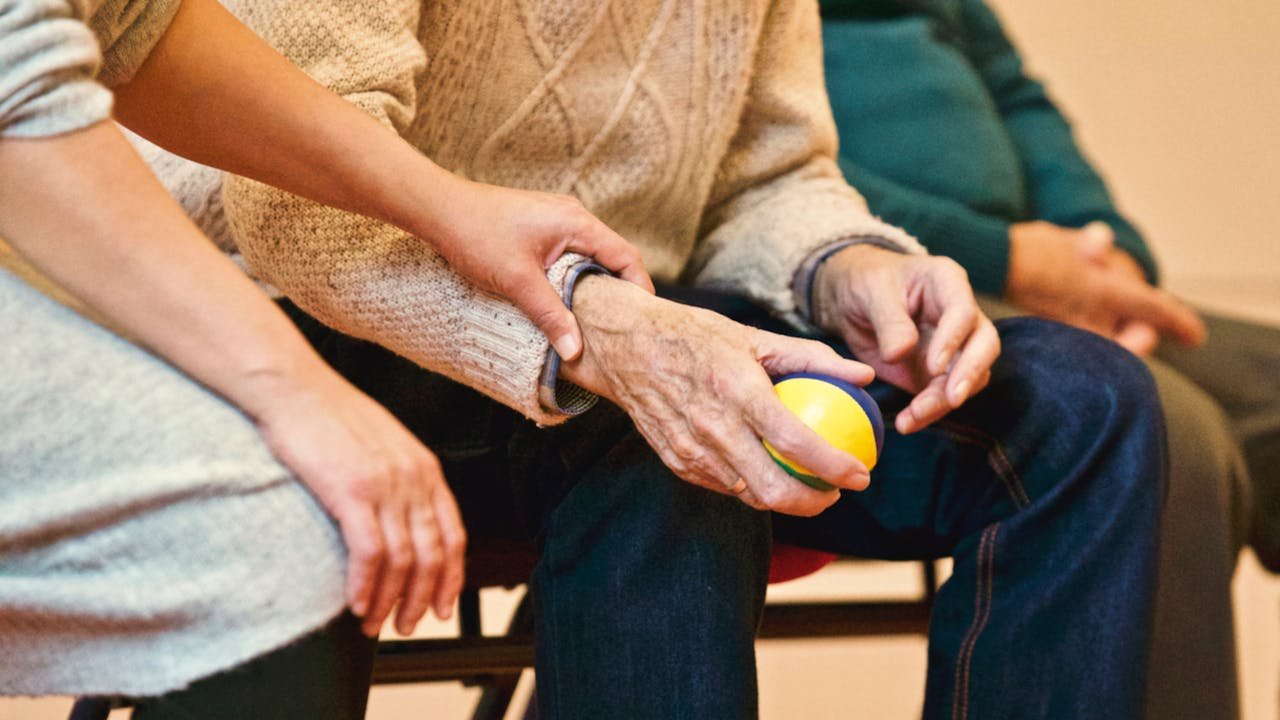Determining when your aging parent needs help is an emotional and delicate process. Age-related physical and cognitive changes can happen so gradually that recognizing the right time to step in can be challenging. You don’t want to invade your aging loved ones’ space or take away their independence, but you also want to ensure their safety, health, and quality of life.
Keep reading to learn the 10 signs your elderly parent needs help. The sooner you recognize them, the more likely you are to avoid a potential crisis.
Key Signs Your Elderly Parent May Need Help
When elderly parents need more help, it’s often about more than just physical needs. It can also be about helping them manage emotional challenges. Knowing what to look for is crucial in being able to step in before minor issues become major problems.
If you notice changes in your aging parents’ behavior and think it might be time to have that tough conversation about their independence, be prepared with the right information and tools.
Licensed Therapists Online
Need convenient mental health support? Talkspace will match you with a therapist within days.
#1. Unexplained weight loss or gain
Sudden or unexplained weight loss or gain can be a serious red flag that your parent may need additional support. Significant weight loss could point to malnutrition, an undiagnosed medical condition, or even difficulty preparing meals. On the other hand, unexpected weight gain might indicate reduced mobility, depression, or side effects from new medications. Addressing nutritional needs promptly is key to preventing further health complications.
To help, arrange a doctor’s visit to identify any underlying causes. You might also consider consulting a dietitian and using a meal delivery service to ensure proper nutrition. Tracking their eating habits and assisting with grocery shopping can also support their overall health.
#2. Decline in personal hygiene
A decline in personal hygiene—body odor, unkempt hair, wearing the same or dirty clothing, or forgetting to bathe—may suggest physical or cognitive challenges. Even parents who pride themselves on their appearance might find daily grooming difficult due to arthritis, reduced mobility, or mental challenges that cause them to forget.
Ways to help:
- Use empathy when discussing to avoid embarrassment
- Offer assistance if they’re open to help
- Arrange for in-home care services
- Modify their bathroom with safety features like grab bars, a shower chair, and nonslip mats
- Give their wardrobe an overhaul and simplify options with clothing that’s easy to put on and wear
- Come up with a consistent daily routine that includes specific times for personal hygiene
- Assess if their lack of personal hygiene might be due to depression
#3. Messy or neglected household
If your parents’ home was generally tidy and clean but now seems cluttered, dirty, or neglected, it might be time to get help with household responsibilities. Unpaid bills, old or expired food in the refrigerator, and stacks of unopened mail can all be signs of depression, physical limitations, or decline.
Ways to help:
- Declutter and organize living spaces
- Arrange for a professional cleaning service to come in regularly
- Set up a system for paying bills, like automatic payments or online banking
- Use pest control measures to prevent infestation
- Take out the garbage regularly, or hire someone to help
- Create organizational storage solutions like bins or shelves
- Ask other family members to share in the responsibilities
#4. Isolation or avoiding social activities
Loneliness, depression, reduced mobility, or hearing loss can all make social activities and interactions difficult for an aging parent. If they no longer seem interested in attending their favorite activities or connecting with others, it could be a sign that something more serious is affecting their well-being.
However, it’s also important to remember that loneliness in retirement is quite common due to natural life changes, such as the loss of work-related social connections, so this could be a contributing factor as well.
Ways to help:
- Suggest they go to senior centers or community group gatherings to increase social interaction
- Recommend classes or clubs that serve their interests — like gardening or painting
- Take turns visiting with other family members
- Find volunteer opportunities for them
- Help them use technology so they can connect with family and friends virtually
- Sign them up for senior-specific workout classes like yoga or water aerobics
#5. Noticeable mood changes or irritability
Frustration can cause sudden behavioral changes like mood swings, an increase in irritability, or a shift in personality. It’s easy for an aging parent to feel frustrated with physical health changes, cognitive decline, or mental health struggles that are out of their control. If your parent seems withdrawn or more irritated lately, start paying attention to their day-to-day stressors. These mood changes may also be signs of anxiety or depression in older adults.
Ways to help:
- Ask how they’re feeling
- Schedule an appointment with a primary care physician to start ruling out medical causes
- Encourage open communication and explore their emotions or frustration
- Ask if they would like to see a therapist, or kindly tell your parent they may need therapy
- Help them identify stressors and triggers
- Encourage calming activities — like gentle exercise or listening to music
- Offer reassurance and be patient
- Remind them they’re not alone
“Aging can be challenging—’health is wealth,’ and it’s not uncommon for older adults to experience a range of emotions as they face health changes or mental health concerns. You may notice increased irritability, anger, depression, or sadness as your parents navigate both physical and mental shifts. Approach these changes with compassion while also being mindful of the potential need for professional care. If mood changes are particularly significant, discuss them with their doctor, as they could indicate underlying medical conditions. Remember, you and your parents are not alone in this process. There are a variety of support services available, including therapy and elder support groups, that can make a meaningful difference. Don’t hesitate to reach out.”
#6. Memory loss or confusion
We all forget a name or misplace an item from time to time, but if you notice your parent is struggling to complete routine or familiar tasks, it might be a sign of declining cognitive health or memory loss. Patterns of confusion can be dangerous, like leaving the stove on or forgetting important appointments, and they should be addressed immediately.
Ways to help:
- Schedule an evaluation with their doctor
- Start a log to track memory issues
- Simplify their environment by labeling things and reducing clutter
- Set up reminders with calendars, alarms, or smart devices
- Stimulate cognitive function with activities like puzzling or reading
- Offer emotional support and reassurance
- Consult a neurologist or memory care special specialist for further evaluation
- Discuss long-term professional care options
#7. Frequent falls or unexplained bruises
Frequent falls or new, unexplained bruises can signal a loss of balance or coordination. They might also indicate hazards around the house or decreasing physical strength. Accidents can result in serious injuries, so it’s important to look for signs of struggle, like difficulty walking up stairs, hesitating before walking, or holding onto furniture for support.
Ways to help:
- Schedule a medical check-up and share your concerns about balance or mobility with the doctor
- Get rid of tripping hazards like loose rugs or cords around the house
- Make sure shoes fit properly, are supportive, and have nonslip soles
- Buy and encourage the use of mobility aids like canes and walkers
- Do a home safety assessment
- Consider getting a medical alert system
#8. Poor nutrition or lack of appetite
Poor nutrition or a loss of appetite in aging parents can stem from a variety of physical or emotional factors. Dental problems, depression, limited access to fresh or nutritious food, and medication side effects are just a few common causes. Addressing these underlying issues is essential to ensure your parents are getting the nutrition they need to maintain their health and well-being.
Ways to help:
- Encourage regular meals
- Assist with grocery shopping
- See a nutritionist
- Sign up for a meal service
- Have more family meals
- Monitor hydration levels and water intake
- Meal prep and portion food so it’s easy to reheat meals
#9. Difficulty managing medications
As parents age, medication management becomes increasingly difficult and overwhelming, especially when they are prescribed multiple medications. According to a CDC study, nearly 70% of older adults ages 49-70 take at least one prescription medication, and 20% take five or more. This increases the risk of confusion around schedules, missed doses, or taking the wrong medication, all of which can lead to serious health issues. Ensuring proper medication management is crucial for their safety and well-being.
“Medication management is crucial for people of any age as taking medications properly makes a significant difference in managing any health concerns. As your parents age, you may notice that they are having more difficulty managing their medications, missing doses, or mixing up or not refilling prescriptions. It is important to discuss this with them and their physician in order to come up with a plan to better manage medications. There are a variety of ways this can be handled. With the cooperation of their doctor, your parent’s medications can be safely handled prior to any further cognitive or physical decline.”
Ways to help:
- Use daily pill organizers and fill them up once a week
- Set up reminders on apps, calendars, or smartphones
- Review their medication regimen with their doctor
- Hire a caregiver to help with medication management if needed
- Ask the doctor about simplifying prescriptions with once daily or combination pills
- Monitor refill schedules
- Ask for a medication list from the doctor and keep a copy in case of emergencies
#10. Increased difficulty with mobility
Mobility becomes more difficult with age. Recent research shows that 40% of men and 53% of women over the age of 85 need assistance with daily living and functioning. Joint pain, muscle weakness, and arthritis can make standing for extended periods, walking, getting dressed, or climbing stairs incredibly difficult.
If your loved one seems unsteady or starts avoiding doing things they used to enjoy, it might be time for mobility assistance.
Ways to help:
- Schedule a medical evaluation to assess mobility issues
- Suggest physical therapy
- Ensure they have access to mobility aids like a wheelchair or walker
- Clear walkways and remove any hazards
- Get them supportive footwear for stability
- Talk about pain management options with their doctor
- Offer to run basic errands
- Arrange transportation services for medical and social appointments
Starting the Conversation and Getting Help
It can be challenging to admit that an aging parent needs help, and starting the conversation is often the hardest part. It’s important to approach the conversation with compassion and understanding, even if your parent is hesitant or refuses assistance. Emphasize that your main goal is to protect their health, safety, and well-being by offering additional support.
Tips for starting the conversation:
- Choose the right time and place: Pick a calm, private setting where they feel comfortable and less defensive.
- Express concerns with empathy: Focus on specific observations rather than making general statements. For example, say, “I’ve noticed you’ve been skipping meals lately,” rather than, “You’re not eating properly.”
- Offer solutions: Suggest practical, helpful options, such as hiring a part-time caregiver, arranging personal care services, or scheduling regular check-ins to show that you’re ready to help make things easier.
Prepare yourself — the conversation might become challenging. Consulting with an experienced therapist can help you navigate this transition. Therapists offer strategies so you can address your concerns in a productive and meaningful way. They can help you manage emotions, improve open family communication, and explain how to know when your elderly parents need help. Creating an aging parents checklist may also help you identify areas where assistance is most needed.
If your parents need help with their mental health, Talkspace offers online therapy covered by Medicare. Medicare coverage makes it affordable and accessible for older adults to get the care they need to address mental health issues as they age. Online therapy can also help you learn how to navigate conversations with your parent.
Take the first step toward compassionate support today — learn about Medicare-covered online therapy from Talkspace.









Leave a Reply